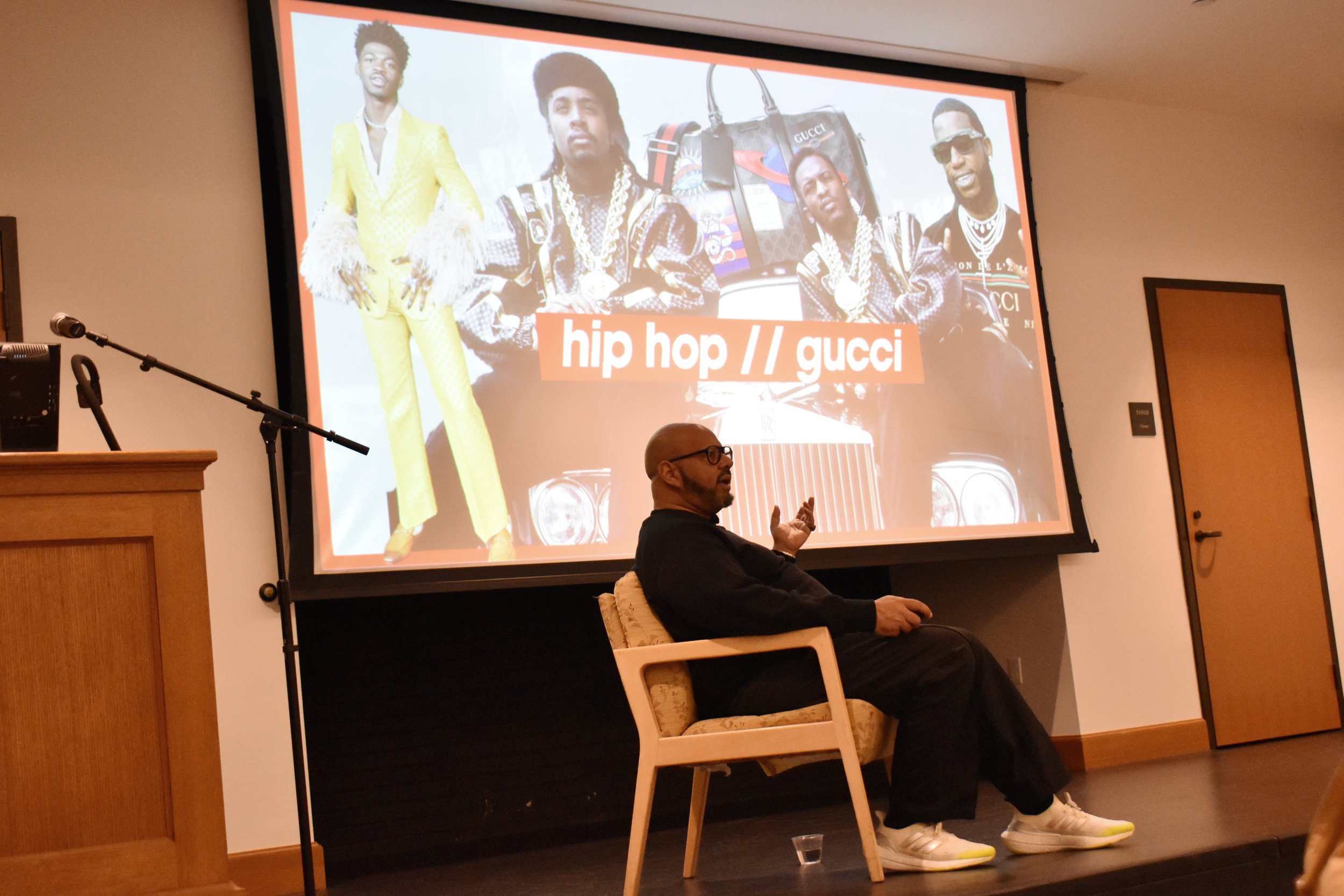Emil Wilbekin Celebrates Black History Month 365 Days
Emil Wilbekin presented the impact that Hip Hop and African American culture has on the fashion industry. Credit: Amanda Dibre '23
February marks National Black History Month, a celebratory time to honor the triumphs and treks of African Americans in the United States throughout history.
Since 1986 when Congress passed Public Law 99-244, February has served as a tribute to honoring the legacy of those part of the African American community and the trailblazers to come. But, with so much history and profound accomplishments, how does the nation manage to squeeze those who pioneered the Civil Rights Movement, became the first black woman to be elected to the United States Congress, the first to play in Major League Baseball, highly acclaimed authors, poets, singer-songwriters and countless others all into one month?
The shortest month of the year is dedicated to African Americans. Citizens acknowledge 28 days, sometimes 29 days, to celebrate all the things African Americans have done for science, fashion, technology, literature and all of history. But, Emil Wilbekin, journalist, media executive, stylist, culture critic and former editor-in-chief of Vibe Magazine, reminded Marist students during his speaking event on Feb. 15 that the successes and struggles of African Americans should be celebrated all year long.
“Why one month? We should celebrate it 365 days a year,” said Wilbekin.
Wilbekin emphasized the great impact that Hip Hop and ultimately African American culture had, and continues to have, on the fashion industry. “I see all the inspiration from the streets,” Wilbekin said.
Marist community fills nearly every chair to listen to Wilbekin. Credit: Amanda Dibre '23
The 1970s fashion saw bomber jackets, tracksuits and sneakers with oversized laces, clearly reflecting the street style of kids in the Bronx. The 80s and 90s gave rise to the famous Dapper Dan, a Harlem couturier. He provided rap culture and the fashion industry with the luxury street style that we saw forty years ago and continue to see today. He reimagined traditional luxury-house products into custom streetwear looks. Taking a quick glance at Gucci and Louis Vuitton, it’s evident the impact Dapper Dan had on the fashion industry, proving once again the power Hip Hop and black culture have in fashion.
Not only does the fashion industry owe a chunk of its success to African American culture, but so do the literary, art, music, culinary and dance industries. While February is a time to celebrate and pay tribute to the African American community, it’s important to remember that their contributions to history and society go beyond 28 days of the year.

